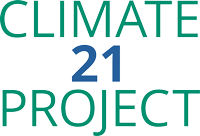Department of the Treasury

Climate change is increasingly hurting American workers, businesses, and industry. Managing the economic and financial risks posed by a changing climate will require a whole-of-economy and whole-of-government approach. The challenge lies in spurring shared economic growth while reducing greenhouse gas emissions and enhancing our resiliency to climate shocks.
Addressing this challenge will necessarily need to account for the President’s highest priorities in 2021: controlling the COVID-19 pandemic and promoting economic recovery. The Secretary of the Treasury will play a central role shaping the administration’s economic recovery program and the Secretary likely will be the President’s chief voice on these matters. To promote near-term job creation and durable long-term growth, the Secretary should have the perspective and resources needed to direct economic recovery efforts that prominently address climate issues.
The Secretary of the Treasury and the Treasury Department are crucial to the success of the administration’s efforts to move the U.S. and global economy to a low-carbon trajectory and to protect the economy from climate change shocks. The Secretary plays a fundamental role in shaping the federal budget and tax and spending policies that ensure both robust long-term economic growth and strong climate action. Treasury has oversight, consultative, or advisory responsibility across virtually every aspect of economic policy and every U.S. government agency. Treasury can influence climate-focused regulations by providing candid economic advice informally through interagency discussions and through the formal OIRA process. Treasury can frame the financial regulatory agenda and federal insurance policy, as well as engage financial regulators on climate change threats to financial stability. Treasury helps design non-discretionary spending policies through its budgetary role and its oversight role for social security and Medicare.
The Secretary is America’s top economic diplomat and is central to global economic and financial leadership. Our partners and allies—at the Group of 20, the IMF and World Bank, and at the Financial Stability Board—look to the United States to spearhead initiatives to spur global growth and ensure resilient and balanced development.
In the absence of federal action, the private sector and state and local governments have seized the initiative on climate policy innovation. Treasury can create an accommodating regulatory and policy environment to spur further private sector and state government efforts.
Lead Authors


